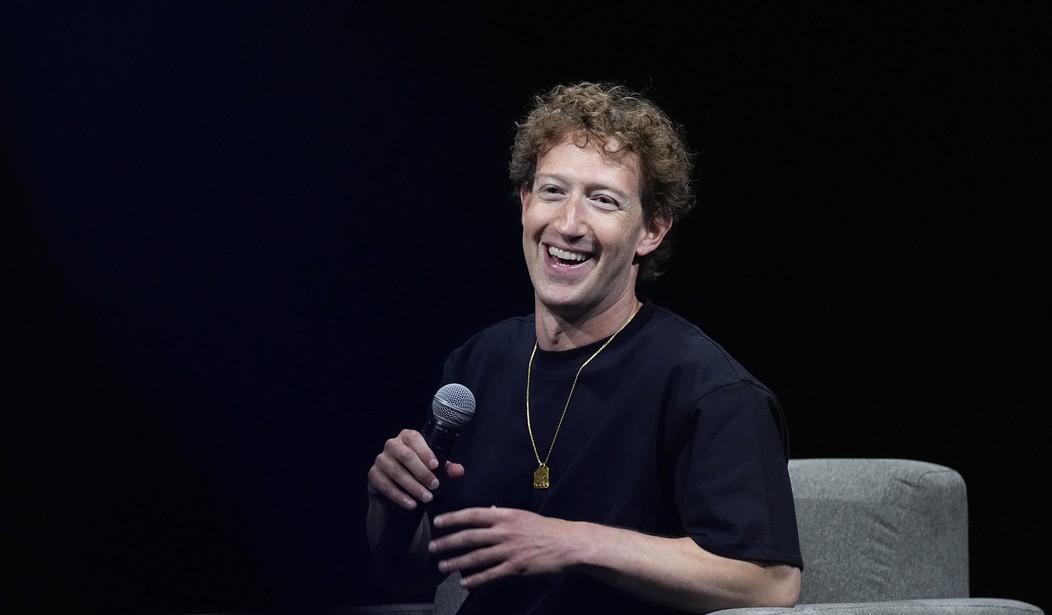On Tuesday, Mark Zuckerberg announced a major overhaul in Meta’s content moderation strategy, signaling a renewed commitment to free speech across his platforms — Facebook, Instagram, and that weird clone of X called Threads. I have to admit that if you take what he says at face value, there’s a lot to be excited about. But in the end, the nagging question that remains is whether we can trust him.
"I started building social media to give people a voice,” Zuckerberg said, reflecting on Meta’s original mission. He admitted that the systems designed to moderate content have led to significant overreach, acknowledging, “Even if they accidentally censor just 1% of posts, that’s millions of people.” If these changes genuinely materialize, millions may finally experience a less restrictive online environment.
Without a doubt, for those frustrated by the increasing censorship and political bias in social media, this could be a promising shift. During COVID, censorship exploded on social media, and after the 2020 election, Facebook suppressed political content. And alleged concerns over misinformation prompted the company to embrace fact-checkers and adopt stricter content policies that tended to be biased against conservatives.
Though many on the left disputed this, Zuckerberg is now conceding that those moderation efforts were one-sided and backfired.
“The fact-checkers have just been too politically biased and have destroyed more trust than they’ve created,” he said. I won’t deny that his recognition of the damage done to trust and transparency is a step in the right direction, but one has to wonder: Will Meta truly let go of its entrenched biases, or is this just a calculated move to regain public favor?
Related: What's Happened to Facebook's Mark Zuckerberg?
Zuckerberg insists that Meta plans to phase out fact-checkers and introduce a “community notes” system, similar to X. This shift promises more user involvement in addressing misinformation, a potentially exciting development for content creators like us who are tired of biased third parties declaring content to be “misinformation." However, questions remain. Will this new system be any less susceptible to bias? Zuckerberg’s words sound promising, but the execution will tell the real story. Will this allow for genuine free speech, or will it still fall short?
For sure, everything Zuckerberg said sounded great, including scaling back restrictions on controversial topics. Will I be able to say that men cannot become women (and vice versa) without getting censored? Can people question the origins of COVID without being suppressed? Can we discuss the legitimacy of the 2020 election without fear of being demonetized?
These are all questions that we can only wait and see if they pan out.
I just don’t know whether Zuckerberg is saying the right things or if he actually means them. He certainly hit all the right notes.
“What started as a movement to be more inclusive has increasingly been used to shut down opinions and shut out people with different ideas, and it’s gone too far,” Zuckerberg admitted.
🚨 BREAKING: Mark Zuckerberg announces sweeping changes to Facebook and Instagram to move toward Free Speech including:
— Benny Johnson (@bennyjohnson) January 7, 2025
-Ending Third-Party Fact Checking and Replacing it with Community Notes like 𝕏
-Removing Reduction of Political Content
-Lifting Topic Restrictions pic.twitter.com/9Y2DVQSrpk
Honestly, this admission alone was huge. And it could help sites like PJ Media grow after years of being suppressed. Facebook reduced political content after the 2020 elections, crippling many sites across the political spectrum. Zuckerberg now believes that users want more engagement on political issues. While this could foster healthier, more robust debate, it’s still unclear how Meta will manage this without falling back into the same biases that led to censorship in the past.
I want to believe Zuckerberg, but I have to see proof that he means what he says before I get too excited that free speech is coming to Facebook.










